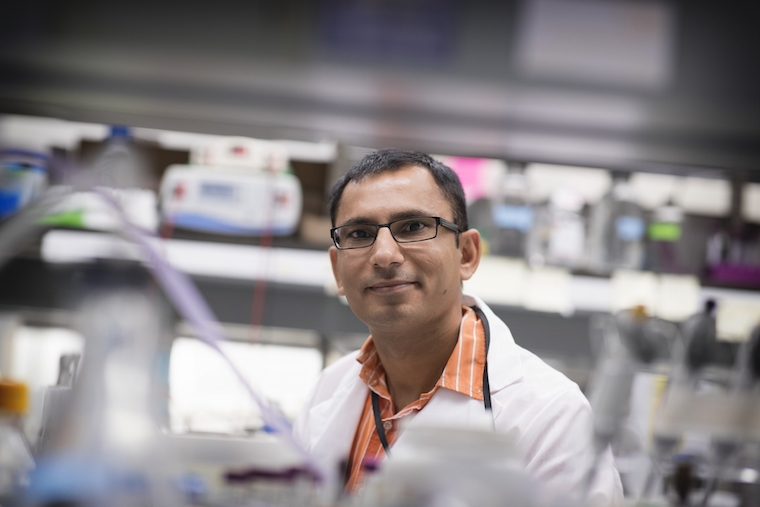Pharmaceutical companies have pumped billions into promising treatments for solid tumors -- such as ovarian, colon and triple-negative breast cancer -- only to have them fail in phase II clinical trials. New research from our Jogender Tushir-Singh, PhD, explains why and could rescue those treatments from the scrap heap.
The treatments aim to harness the body's immune system to destroy cancer cells. These immunotherapies and CAR T-cell therapies have generated a lot of excitement in the last decade, but they've proved more effective against melanoma and leukemia than solid tumors.
That's partly because immune cells have a tough time making their way deep into tumors. To overcome this, scientists have developed an approach that selectively uses antibodies to target a receptor on the cancer cells' surface. This approach essentially tells the cancer cells to die and enhances the permeation of the immune cells into solid tumors -- all without the toxicity seen in chemotherapy.
This approach has worked very well in lab tests and reduced tumor size in immune-deficient mouse models. But when tested in phase-II clinical trials, it consistently failed to improve survival in human patients.
Tushir-Singh and his collaborators figured out the problem: The antibody approach was inadvertently triggering biological processes that suppress the body’s immune response. What was meant to help the immune system battle cancer was actually preventing it from doing so.
The researchers found they could restore the potency of the antibody approach in human cancer cells by co-targeting the negative biological processes with improved, immune-activating therapy. This combination therapy significantly increased the effectiveness of cancer-killing immune cells known as T cells, shrinking tumors and improving survival in lab mice.
Tushir-Singh hopes this will hold true in people as well. If so, it could revive those failed therapies and provide new options for patients with solid tumors.
“We would like to see these strategies in clinical trials, which we strongly believe have huge potential,” he said.
